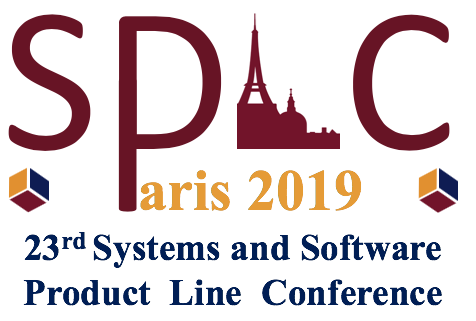Doctoral Symposium Keynote Speaker: Professeur Carlo Ghezzi |
 |
Becoming and being a researcher–what I wish someone would have told me when I started doing research
Carlo Ghezzi is an ACM Fellow (1999), an IEEE Fellow (2005), a member of the European Academy of Sciences and of the Italian Academy of Sciences. He received the ACM SIGSOFT Outstanding Research Award (2015, the Distinguished Service Award (2006), and the 2018 TCSE Distinguished Education Award from IEEE Computer Society Technical Council on Software Engineering (TCSE). He has been President of Informatics Europe. He has been a member of the program committee of flagship conferences in the software engineering field, such as the ICSE and ESEC/FSE, for which he also served as Program and General Chair. He has done research in programming languages and software engineering for over 40 years and has been a recipient of an ERC Advanced Grant on self-adaptive software systems. He has published over 200 papers in international journals and conferences and co-authored 6 books.
CONTEXT
The SPLC Doctoral Symposium aims to provide a supportive environment that enables doctoral students to get constructive feedback on their research. Students will have the opportunity to discuss their work with experienced members of the community. Thus, the symposium offers a unique opportunity to gather valuable expert feedback and to get in touch with peer students in the same field. The event is dedicated to PhD students who are least in the second year of their candidature, presenting initial results that are not yet mature enough for a full conference paper. The SPLC doctoral symposium covers the same research topics as the main conference.
IMPORTANT DATES
- Paper submissions: June 4, 2019 (Extended).
- Notifications: June 28, 2019.
- Camera-ready papers: July 2, 2019.
- Conference: September 9-13, 2019.
Requirements
To participate, students should prepare a research plan answering the following questions:
- The research problem being addressed and its importance
- The research methodology and techniques being applied
- The solution being proposed, its novelty and validity
- The relation of the work with the state of the art
The idea of the research plan is to provide clear material that can be used as a basis for guidance and discussion. Therefore, students should think about the above points carefully and try to make their ideas as concrete and clear as possible. Students at relatively early stages of their research may find it difficult to address some of these points, but should still attempt to do their best. It is strongly recommended that students discuss the research plan with their supervisors.
The following structure is recommended:
- Front matter:Title, your name, email address, abstract
- Introduction and Motivation: Introduction to the area of study; description of the problem tackled and its importance; what the literature says about this problem and where existing work fails; how you plan to tackle this problem; what results you envision; how you plan to validate your solution.
- Research Questions: Clearly state the research questions you plan to address and any assumptions you take.
- Research Methodology and Approach: The research methodology you plan to use (e.g. design science, action research), including the techniques you plan to employ in your research (e.g. formalization, algorithm specification, case studies). In accordance with your research methodology, describe your research approach: what novel methods and/or technology you are going to build, how you are going to do that, including aspects such as data collection, software prototyping and evaluation. Discuss any threats to validity you may envision.
- Preliminary Results: Overview the key results achieved so far. Provide an example to explain how the solution obtained so far works – this is very important!
- Work plan: Outline the structure of your thesis, distinguishing the work accomplished so far from that remaining, incl. a publication plan. Also provide a detailed work plan for the next 12 months.
The research plan should be 8 pages maximum, in ACM SIGS proceedings format (tighter style). All submissions must be in English, in PDF format, and must not contain or cite proprietary or confidential material. The research plan should be sent as a single file via EasyChair (track: Doctoral Symposium).
\documentclass[sigconf]{acmart}
\acmConference[SPLC'19]{23rd International Systems and Software Product Line Conference}{9--13 September, 2019}{Paris, France}
Submissions will be evaluated by two reviewers according to relevance, originality and feasibility of the described research. We recommend that you discuss the submission with your supervisor.
FORMAT OF THE SYMPOSIUM
CHAIRS
PROGRAM COMMITTE
Don Batory, UTCS, University of Texas, Austin, USA
Mireille Blay-Fornarino, Université Nice Sophia Antipolis, I3S, Nice, France
Nicole Levy, Cedric, CNAM, Paris, France
Roberto Erick Lopez-Herrejon, Ecole de Technologie Supérieure, Montréal, Canada
Gilles Perrouin, PReCISE, University of Namur, Belgium



